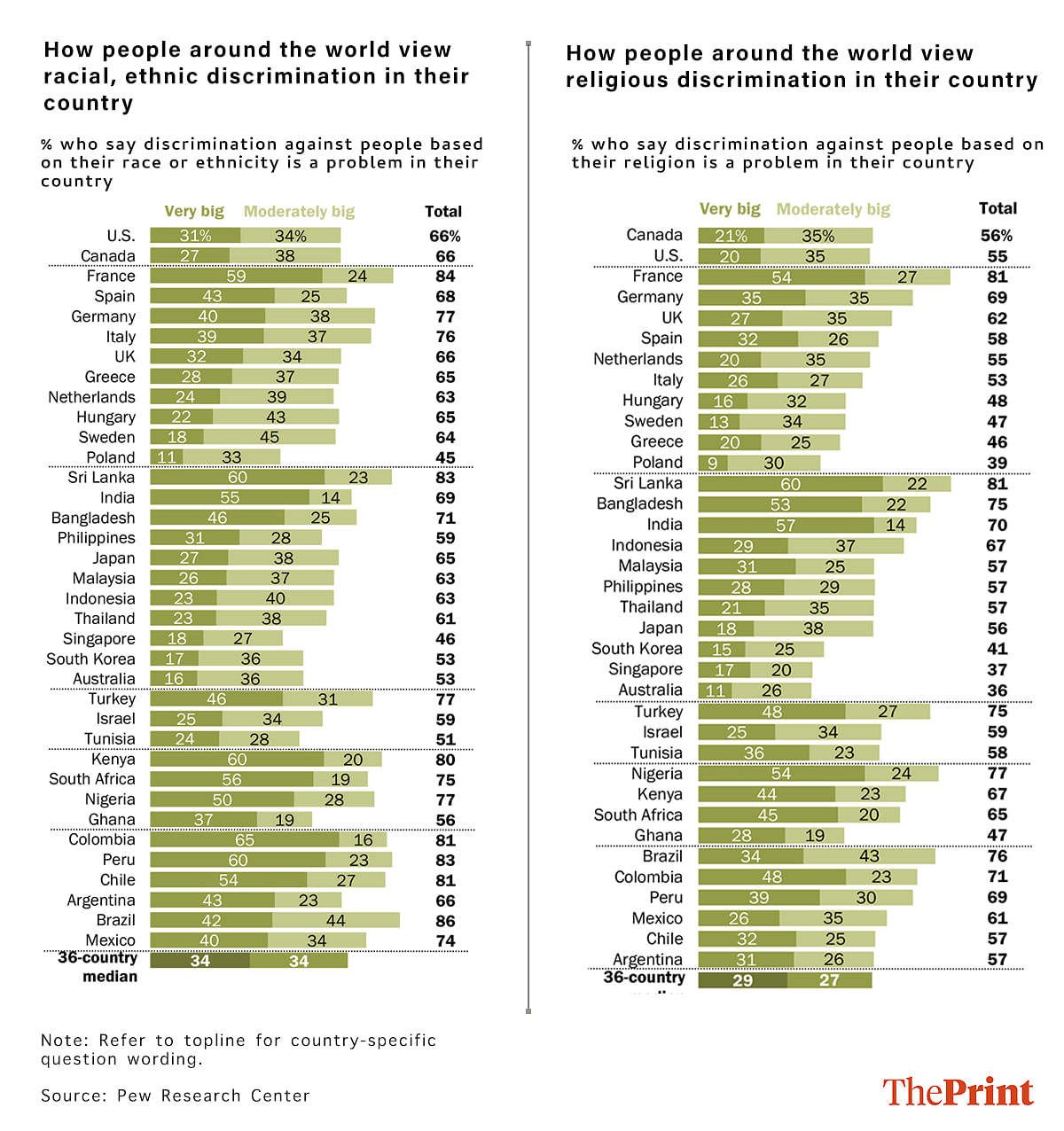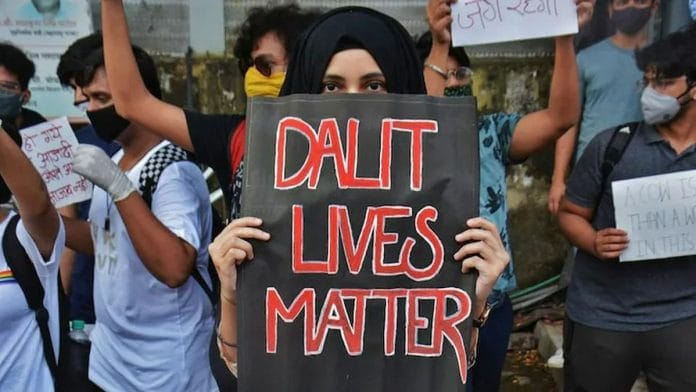New Delhi: More than 70 percent of Indians believe that religious discrimination is either a ‘moderately’ or ‘very’ big problem in India, among the highest proportions out of 36 countries surveyed across the world, according to a new report by Pew Research Center.
Further, 69 percent of the respondents in India thought that caste and ethnic discrimination was a problem, marginally higher than the median for the 36 countries surveyed—although respondents in other countries were asked about ‘racial and ethnic’ discrimination rather than caste.
Pew Research Center Thursday published its report—titled ‘Economic Inequality Seen as Major Challenge Around the World’—based on its survey spanning 36 countries across the Asia-Pacific region, Europe, Latin America, the Middle East North Africa region, North America and sub-Saharan Africa.
Pew surveyed 3,600 people in the US and 41,503 people across the other 35 countries over the period 5 January to 22 May, 2024. In one-third of the countries, the surveys were conducted over the phone, while the surveys in the rest—including in India—were conducted in person.
“A majority in every country surveyed says the gap between rich and poor is at least a moderately big problem,” the report said. The data shows that 64 percent of respondents in India said this gap was a ‘very big’ problem, while 17 percent believed it was a ‘moderately big’ problem.
The data further shows that a higher share of Indians said the rich-poor gap was a ‘very big’ problem than the median (54 percent) for the 36 countries.
Also read: Incumbents have had a tough year, Right-wing populists are here to stay amid polarisation—Pew essay
Religious & caste discrimination a big concern among Indians
“Overall, there is somewhat less concern about religious discrimination than the other issues we asked about in this survey,” the report said. “Still, a median of 29 percent of adults say discrimination against people based on their religion is a very big problem, and 27 percent say it is a moderately big one.”
It did, however, note that India was one of the few countries surveyed where religious discrimination was found to be a major concern.
“In five nations—Bangladesh, France, India, Nigeria and Sri Lanka—half or more believe religious discrimination is a very big problem,” the report said.

In India, 57 percent of the respondents said religious discrimination was a very big problem and another 14 percent said it was a moderately big one.
“Across the countries surveyed, a median of 34 percent of adults say racial or ethnic discrimination is a very big problem where they live,” the report said. “Another 34 percent consider it a moderately big problem.”
Here, too, India fares worse when it comes to those who consider it a very big problem (55 percent) but better on the metric of the share of people who consider it a moderately big problem (14 percent). In India, respondents were asked if caste and ethnic discrimination was a problem and, if so, how big.
However, just 28 percent of Indian respondents said a ‘great deal’ of inequality was due to this caste and ethnic discrimination. Another 28 percent said ‘a fair amount’ of inequality was due to this kind of discrimination. Both of these metrics are higher than the 36-country median.
Also read: 65% in Sri Lanka, 57% in Bangladesh view India favourably, finds Pew. But how do Indians view them
So what do people think leads to inequality?
Notably, while a high percentage of respondents in India—79 percent—said the political influence of the rich was a major factor driving inequality, this was the sixth lowest among the 36 countries surveyed.
The data further shows that 72 percent of the respondents in India blamed the country’s education system for the level of inequality, with 42 percent saying it affected inequality ‘a great deal’ and 30 percent saying it affected inequality ‘a fair amount’. The 36-country median for both metrics was 48 percent and 33 percent, respectively.
It was, however, in the metric measuring the influence of hard work that India scored higher than the median. About 32 percent of Indians thought that some people working harder than others leads to economic inequality ‘a great deal’ in India. Another 28 percent said this affected inequality ‘a fair amount’, taking the total share of people who thought this was a major factor to 79 percent.
This is compared to a 73 percent median score for the 36 countries surveyed.
Not as many Indians believe opportunities at birth affect inequality, either, with 65 percent saying this was a major factor compared with a median score of 75 percent for the 36 countries.
Instead, automation has been blamed more as a significant factor in heightening inequality. A significant 45 percent of Indians said automation affected inequality a great deal, and another 28 percent said it affected inequality a fair amount. This total of 73 percent was significantly higher than the 63 percent median score for the 36 countries.






